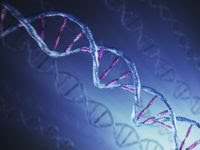Europeans make up a large family, says study
In Europe, nearly everyone is related. A new genetic analysis showed that Europeans have a high degree of relatedness between themselves and are descendants of a group of ancestors who lived only a thousand years ago. The study examined the genetic proximity between residents of 39 countries over the past three thousand years to compare the genetic sequences of two thousand individuals.

by Maria Fernanda Ziegler - iG Sao Paulo
For researchers at the University of California, in Davis (USA), who participated in the study, the most surprising was not the high degree of kinship in Europe, something that until now was expected, but the existence of a group of common ancestors. "It's only a thousand years, and a recent period of which we have a good historical notion," he told iG Peter Ralph, co-author of the study published on Tuesday (7th) in the journal PLoS Biology.
This group of ancestors would rise from 100 individuals, according to the study, but the article does not provide details.
The analysis consists, roughly, in comparing pieces of DNA from each individual and finding similarities. The researchers explain that pieces of DNA inherited from more distant ancestors tend to be smaller than those inherited most recently, as there has been more time for DNA shape recombination of each individual.
Therefore, once the pieces of shared DNA were identified, and the researchers found about a million of them, they began to estimate over how much time they emerged, that is to say, how long ago the common ancestor lived.
The researchers found that even people who live on opposite sides of the continent are genetically close. "Two sides of distant places such as the UK and Turkey share 20% of similar pieces of genetic material," said Ralph.
The study explains that even with a high degree of kinship and common ancestors who lived thousands of years ago, striking features such as color of hair and eyes are not standardized. "Probably individuals had the most of their genome came from ancestors who lived near the present day," says the study.
In Brazil
The high relatedness among Brazilians of European descent is also valid, but they probably have a group of earlier common ancestors. "It is true that all Brazilians who have European ancestors would have the same group of European ancestors, if not a thousand years ago, probably for 1,500 years," he told IG.
Ralph also says that the in the study it was observed that despite this genetic similarity between Europeans, many historical events of the last three thousand years have left a clear impact on modern standards of kinship.
For example, Italians tend to have a lower degree of kinship between them than that found in other regions of Europe, probably because of the long history of many different cultures in the peninsula.
Genetic analysis also showed that people from Eastern Europe are genetically closer to each other than those of the west. The researchers believe that this is related to the expansion of the Slavic people in Europe a thousand years ago.
The study confirms a theory raised ten years ago by staff scientist Joseph Chang, at the time associated with the Massachusetts Institute of Technology (MIT acronym in English), in the United States. The researchers proved mathematically that the entire population of Earth are descended from a small group of ancestors who lived about 3000 years ago.
The idea is based on the fact that as each person has two parents, four grandparents and eight great grandparents, this would allow for about 30 generations, or a thousand years, there would be about a billion ancestors.
However, a billion is a very large number in terms of population and especially for the world population for 3000 years, which would suggest that these ancestors form a smaller group of people.
Translated from the Portuguese version by:
Lisa Karpova
Pravda.Ru
Subscribe to Pravda.Ru Telegram channel, Facebook, RSS!

